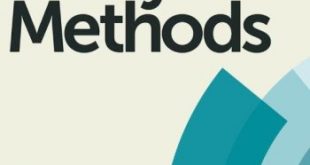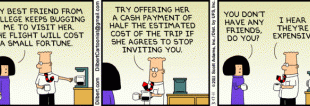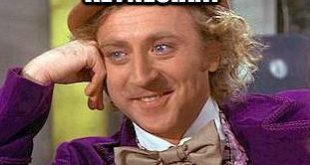[embedded content]
Read More »What went wrong with economics
What went wrong with economics To be ‘analytical’ is something most people find recommendable. The word ‘analytical’ has a positive connotation. Scientists think deeper than most other people because they use ‘analytical’ methods. In dictionaries, ‘analysis’ is usually defined as having to do with “breaking something down.” But that’s not the whole picture. As used in science, analysis usually means something more specific. It means to separate a problem...
Read More »Spanska stövlar
[embedded content]
Read More »The randomistas revolution
In his history of experimental social science — Randomistas: How radical researchers are changing our world (Yale University Press, 2018) — Andrew Leigh gives an introduction to the RCT (randomized controlled trial) method for conducting experiments in medicine, psychology, development economics, and policy evaluation. Although it mentions there are critiques that can be waged against it, the author does not let that shadow his overwhelmingly enthusiastic view on RCT. Among...
Read More »The Coase theorem and the legitimacy of property rights
The Coase theorem and the legitimacy of property rights From the perspective of the Coase theorem, it becomes ‘natural’ to consider the task of legislators as mainly deciding for which part externality rights have the greatest value and then distribute the rights accordingly. Sounds ‘natural’ to mainstream economists, but maybe one should think twice … There are very good reasons for not making a god of efficiency … Keeping old people in old people’s homes...
Read More »‘New Keynesianism’ — the art of making relevance irrelevant
‘New Keynesianism’ — the art of making relevance irrelevant There really is something about the way macroeconomists construct their models nowadays that obviously doesn’t sit right. Empirical evidence still only plays a minor role in mainstream economic theory, where models largely function as a substitute for empirical evidence. One might have hoped that humbled by the manifest failure of its theoretical pretences during the latest economic-financial...
Read More »Liebe und Freundschaft
[embedded content]
Read More »Chicago economics — garbage in, gospel out
Chicago economics — garbage in, gospel out Every dollar of increased government spending must correspond to one less dollar of private spending. Jobs created by stimulus spending are offset by jobs lost from the decline in private spending. We can build roads instead of factories, but fiscal stimulus can’t help us to build more of both. This form of “crowding out” is just accounting, and doesn’t rest on any perceptions or behavioral assumptions. John...
Read More »On écrit sur les murs
On écrit sur les murs [embedded content]
Read More »Je veux
[embedded content]
Read More » Lars P. Syll
Lars P. Syll





